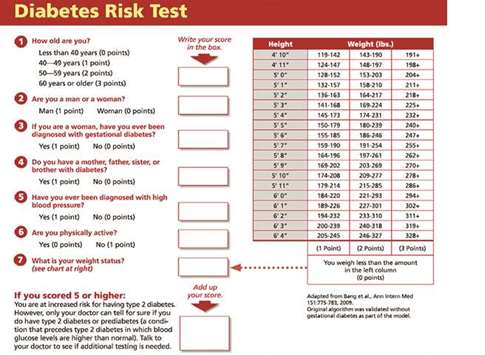Diabetes mellitus is a chronic progressive disease, characterised by raised blood sugar levels with a tendency to affect multiple systems and can progress to irreversible damage to the vital organs of the body.
As per the WHO data, about 422 million people all over the world are affected with diabetes mellitus. It has emerged as a pandemic with a rising trend, especially in middle income countries. The global prevalence has risen from 4.8% (in 1980) to 8.5% (in 2014) in adult population over 18 years.
In 2015, there were about 1.6 million death occurred directly due to diabetes.
Who should be evaluated?
* Age >45 yrs
* Overweight or obese (BMI->25kg/m2, in Asian Americans >23kg/m2)
* Hba1c> 5.7%
* Impaired fasting glucose (FBS between 100-125mg/dl) or impaired glucose tolerance (RBS/PPBS-140-199)
* First degree relatives with diabetes
* High risk race or ethnicity
* Woman who had gestational diabetes mellitus or delivered a baby >4kg
* H/o cardiovascular disease
* H/o hypertension >140/90 or on medications
* Women with polycystic ovary syndrome
* Physical inactivity
* Severe obesity with black velvety hyper pigmentations in neck or flexor creases
How to diagnose it
An individual with any one of the following criteria is considered as diabetic.
* Fasting plasma glucose (preferably 8-12hrs fasting) 126mg/dl or above
* 2 hour post prandial glucose in an oral glucose tolerance test (OGTT) 200mg/dl
* Hba1c over 6.5%
* RBS over 200mg/dl with classical symptoms of high blood sugar
Are you at risk of type 2 diabetes?
One can evaluate his/her risk of developing type 2 diabetes based on age, gender, history of gestational diabetes mellitus, history of diabetes among parents or siblings, history of high blood pressure detected at any time, physically active or not and the weight. If your total point is more than 5 in diabetes risk test, then you are at high risk of developing type2 diabetes.
Dramatic changes in the lifestyle and food habits have made an increasing pattern of obesity in paediatric and adolescent age group. The higher risk of malformations associated with pregnancies in those with poor metabolic control, a preconception counselling will improve a better outcome.
Diabetes is one of the commonest non-communicable disease, with significant burden on the individual and his family. Hence the management including lifestyle modifications should be patient-centred and based on the individual preference, values and goals.
The cost effective management strategies including early interventions with strict non-pharmacological measures and adherence to it will help the patient to overcome the burden to an extent.
Based on the new evidences of glycemic benefits, the standards of medical care by American Diabetes Association recommends that prolonged sitting be interrupted every 30min with short bouts of physical activity.
Based on the current treatment options and scientific knowledge, type 1 diabetes is not a curable disease.
If diabetes remains uncontrolled for a significant period, it can cause damage to brain, eyes, heart, blood vessels, kidneys and nerves.
Regular monitoring and strict control of blood sugars will reduce the risk of future morbidities.
Diabetes in young age should be controlled stringently, like FBS between 90-130mg/dl and 2hr PPBS less than 140mg/dl. An Hba1c value should be maintained below 7%. In elderly patients, it may be relaxed to a level of up to 8% to avoid hypoglycaemic attacks.
Diabetic management will not be completed if you are not controlling the co-morbid conditions like blood pressure and blood lipid levels. Maintaining an ideal body weight for the height also has an important role in reducing the insulin resistance and thus attaining the recommended glycaemic control.
Things to be checked for during treatment
* Take medications and food at the right time without fault.
* Always take a healthy high fibre diet with low carb, low fat and low salt.
* Consult your doctor before starting any exercise programme.
* Do regular exercise for the same time period each day (at least 150 minutes per week).
* Always do a warm up before any exercise.
* Drink plenty of water before and after exercise.
* Wear proper fitting shoes to avoid shoe bite injury.
* Avoid over exercise.
* Avoid exercise immediately after a heavy meal.
* Watch for hypoglycaemia – symptoms like sudden onset of hunger, profused sweating, shivering, nervousness, dizziness or increased heart rate.
* Check blood sugars before exercise and driving vehicle.
* When you become sick, skip or reduce the quantity of food, do reduce or hold medicine in consultation with your doctor.
* Correct hypoglycaemia with 15gm glucose, juices, sweets or a carbohydrate meal till you become asymptomatic; otherwise you should seek medical help.
* Dr Gireesh Kumar B MBBS, MD (General Medicine) is a Specialist - Internal Medicine at Aster Hospital, Doha

GULF TIMES
